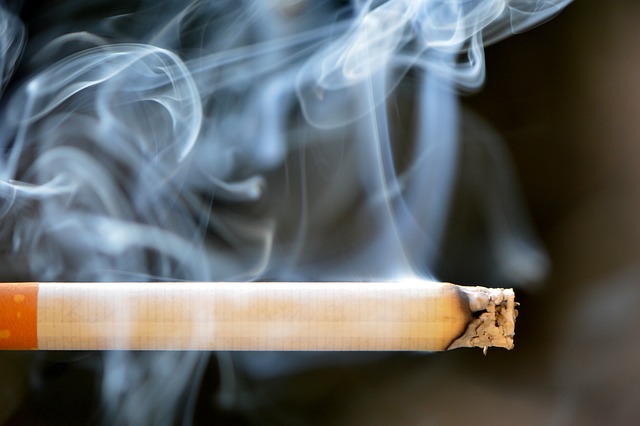Smoking cigarettes can cause a lot of harm to the body. It makes a person more likely to get cancer, heart disease, stroke, eye problems, and gum disease.
According to the Centers for Disease Control and Prevention (CDC), cigarette smoking harms almost all organs in the body and causes many diseases.
It reduces the health of smokers in general.
Smoking cigarettes harms the lungs, heart, reproductive organs, skin, and eyes, and it raises the chances of getting various types of cancer.
This article examines 7 potential consequences of smoking cigarettes.
Lung Damage
Smoking cigarettes hurts the lungs because when a person smokes, they take in nicotine and other harmful substances.
The CDC reports that roughly 9 out of 10 lung cancer deaths are linked to smoking.
Smoking cigarettes also presents a greater risk of developing and dying from chronic obstructive pulmonary disorder (COPD).
COPD is an umbrella term for two chronic lung conditions: bronchitis and emphysema.
Smoking is the most common cause.
Bronchodilators and lifestyle measures can help manage it, but it will usually worsen over time.
The American Lung Association report that smoking causes 80% of COPD deaths.
Heart Disease
Smoking cigarettes can damage the heart, blood vessels, and blood cells.
The harmful substances in cigarettes can make it more likely for a person to get a condition called atherosclerosis.
This is when plaque builds up in the blood vessels.
This buildup slows down blood flow and can create harmful blockages.
Smoking also increases the risk of peripheral artery disease (PAD), which occurs when the arteries to the arms and legs start to narrow, restricting blood flow.
Having PAD increases the risk of blood clots, chest pain, stroke, and heart attack.
Fertility problems
Smoking cigarettes can harm a woman’s reproductive system and make it harder for her to get pregnant.
This could be because tobacco and other chemicals in cigarettes can change hormone levels.
In men, the chance of having trouble getting or keeping an erection increases if they smoke more and smoke for a long time.
Smoking can also harm the quality of sperm and make it harder to get pregnant.
Risk of type 2 diabetes
The CDC report that people who smoke regularly have a 30–40% higher risk of developing type 2 diabetes than those who do not.
Smoking can also make it more difficult for people with diabetes to manage their condition.
Vision problems
Smoking cigarettes can harm your eyes and increase the chances of getting cataracts and macular degeneration.
Poor oral hygiene
People who smoke have double the risk of gum disease.
Symptoms of gum disease include swollen and tender gums, bleeding when brushing, loose and sensitive teeth.
Smoking tobacco can limit a person’s ability to taste and smell things properly. It can also stain the teeth yellow or brown.
Integumentary system
The integumentary system consists of a person’s skin, hair, and nails.
Smoking tobacco can affect a person’s skin and hair.
A person who smokes may experience prematurely aged, wrinkled skin.
Smoking can cause the hair and skin to smell like tobacco.
It can contribute to hair loss and balding.
It can also cause discoloration of the nails, causing them to become yellow or brown.
Quitting smoking is not easy, but according to the CDC, there are now more ex-smokers than current smokers.
Once a person stops smoking, the benefits start accumulating.
These include clearer skin, improved oral health, more stable hormones, a stronger immune system, and a reduced risk of many types of cancers.

